- Home
- News & Media
- Detail
Jakarta, May 7, 2025 – PT Biro Klasifikasi Indonesia (BKI) held a Focus Group Discussion (FGD) entitled “Safely Transporting Battery-Based Electric Vehicles”, bringing together various stakeholders including the insurance sector, ship operators, regulators, and technology experts. The discussion focused on the increasing fire risk associated with the sea transportation of electric vehicles (EVs), aiming to develop comprehensive, collaborative solutions to address the issue.
Electric vehicle sales are currently dominating the market, with Gaikindo data showing a significant increase in sales from 2022 to 2023. However, this positive trend also presents major challenges—especially in the ferry transport sector—where the risk of fire aboard vessels carrying EVs is on the rise.
Amir Makbul, Sub-Director of Ship Design and Stability at the Ministry of Transportation, revealed that the issue of fires on ships carrying EVs has become a global concern and will be thoroughly discussed by the International Maritime Organization (IMO) in 2027. The Indonesian government has also taken preventive measures by raising surveillance standards and issuing circulars to tighten risk prevention procedures.
Technically, M. Arif Kurniawan, Senior Manager of Research and Development at BKI, stated that based on BKI's research, 57.7% of accidents involving EV-carrying vessels are caused by lithium-oil batteries, which are known to produce hotter and more uncontrollable fires compared to other sources of ignition.
During the FGD, Yohanes Oscarino, Claim Group Head at PT Tugu Reasuransi Indonesia (Tugure), shared the insurance and reinsurance industry's perspective on the risks of transporting EVs by ship. Oscarino explained that according to Q4 2024 data from the Indonesian General Insurance Association (AAUI), the trend in hull insurance premiums has continued to rise in line with the growing fire risk—much of which is attributed to electric vehicle batteries.
“In the past three years, there have been several incidents of shipboard fires suspected to have originated from electric vehicles or motorbike batteries. This will inevitably affect the loss ratio, potentially leading to premium adjustments by insurance and reinsurance companies,” said Oscarino.
He further emphasized that although fires are covered under hull insurance policies, claim payments are still subject to complete documentation and the agreed policy terms.
“Reinsurance and insurance play a key role in managing the financial risks faced by policyholders. However, we continue to adhere to the legal principles governing insurance, and we prioritize transparency of the information disclosed by the insured party, in line with the principle of utmost good faith,” he asserted.
Oscarino also explained that insurance is essentially a contractual agreement. In the absence of specific regulations, insurance companies have the authority to include additional clauses in the policy to mitigate risks. One example is the mandatory possession of fire extinguishers (APAR) or the requirement of a warranted class maintain clause, as already implemented by BKI.
This FGD reinforced the understanding that addressing the risks associated with EV transportation requires an integrated cross-sectoral approach, encompassing regulation, technology, education, and the supportive role of insurance and reinsurance in creating comprehensive solutions.

Jakarta - PT Tugu Reasuransi Indonesia (Tugure) has been honored with the Best Reinsurance Award at the Insurance Awa... Read More
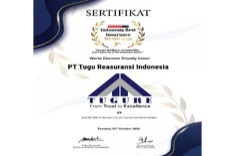
Jakarta - PT Tugu Reasuransi Indonesia (Tugure) is proud to announce that its CEO has been awarded the Best CEO 2020 ... Read More
Jakarta - PT Tugu Reasuransi Indonesia (Tugure) has successfully maintained its IFS rating of A+(idn) with a Stable O... Read More
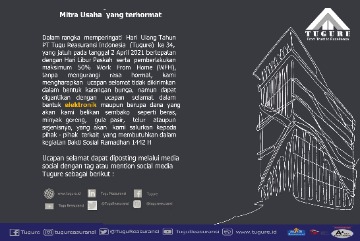
To our esteemed Tugure Business Partners,
In commemorating the 34th Anniversary of PT Tugu... Read More
Jakarta - PT Tugu Reasuransi Indonesia (Tugure) is delighted to announce that it has received an award in the Indones... Read More
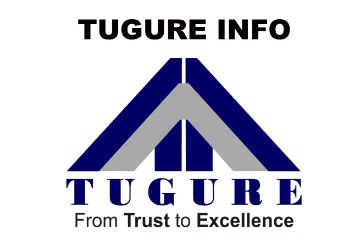
Jakarta - PT Tugu Reasuransi Indonesia (Tugure) remains optimistic in facing the insurance and reinsurance market in ... Read More


Link Berita > Read More
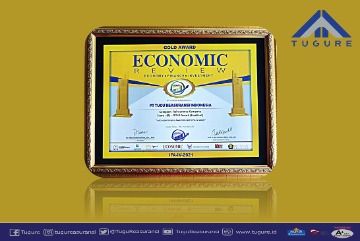
Tugure meraih penghargaan Gold Award (excellent) pada “Indonesia Finance Award-IV-2021 (IFA-IV-2021), category ... Read More

Jakarta (ANTARA) – PT Tugu Reasuransi Indonesia (TuguRe) menjalankan sejumlah strategi jitu sehingga mampu memp... Read More

Gelar Kelas Diskusi, Tugure Bahas statistik poperty dan engineering
Read More

Jakarta (ANTARA) – PT Tugu Reasuransi Indonesia (Tugure) menyelenggarakan webinar ... Read More

Dear Business Partner,
In connection with Eid al-Fitr 1 Syawal 1443 H, we hereby notify th... Read More
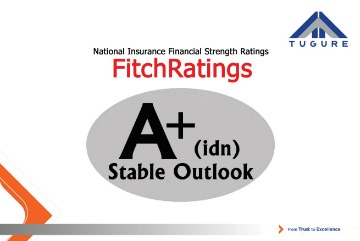
Fitch Ratings - Jakarta - 30 Nov 2022: Fitch Ratings Indonesia has affirmed PT Tugu Reasuransi Indonesia's (Tugur... Read More

Jakarta – PT Tugu Reasuransi Indonesia (Tugure) posted positive performance throughout 2022 with growing premiu... Read More

Jakarta — Closing 2022, Tugure managed to record positive performance by maintaining Tugure's National Insu... Read More

Jakarta - PT Tugu Reasuransi Indonesia (Tugure) scored a brilliant performance throughout 2022 with a significant inc... Read More

The 2018 Insurance Award, which took place at the Le Meridien Hotel, is a prestigious event in the insurance world or... Read More

Jakarta - The national insurance industry is believed to still have the potential to grow supported by capital c... Read More

PT Tugu Reasuransi Indonesia (Tugure) held a Sharing Session event specifically discussing data center security amid ... Read More

Tangerang — PT Tugu Reasuransi Indonesia (Tugure) distributed Corporate Social Responsibility (CSR) assistance ... Read More

PT Tugu Reasuransi Indonesia (TuguRe) has commenced the transition to implement new reporting standards, namely Inter... Read More

Bali, October 17, 2019 – Tugure took the golden opportunity at the 25th Indonesia Rendezvous event, not only as... Read More

Jakarta - PT Tugu Reasuransi Indonesia (Tugure) achieved impressive performance throughout 2022 with a significantly ... Read More

Jakarta (Men's Obsession) - When Erwin Basri was appointed as the Director of Operations, he immediately faced a ... Read More
Jakarta (Obsession News) - Erwin Basri's name is well-known in the insurance business world. His career journey i... Read More
BANYUWANGI - Several business classes of liability insurance are predicted to still have potential growth in 2023. Th... Read More

JAKARTA - The reinsurance industry, both globally and nationally, is expected to remain quite challenging in 2024. Read More

JAKARTA - The global and national reinsurance industry is expected to continue facing challenges in the form of a har... Read More

Bali – PT Tugu Reasuransi Indonesia (Tugure) has reaffirmed its support for the 27th Indonesia Rendezvous ... Read More

Bali - PT Tugu Reasuransi Indonesia (Tugure) is committed to integrating sustainable practices into all of its operat... Read More

JAKARTA – PT Tugu Reasuransi Indonesia (Tugure) has achieved impressive performance throughout 2023. These posi... Read More

Jakarta - PT Tugu Reasuransi Indonesia (Tugure) has been awarded The Best Performing Reinsurance 2023 Based on Financ... Read More

Jakarta - Reinsurance company PT Tugu Reasuransi Indonesia (Tugure) has successfully maintained its national rating o... Read More

Hong Kong – In an effort to improve employee competencies in both soft and hard skills, PT Tugu Reasuransi Indo... Read More
Jakarta — The insurance business lines, both in energy and casualty globally, are still facing the trend o... Read More

Jakarta — The increase or inflation of medical costs in Indonesia is considered a challenge for health insuranc... Read More

Dear Business Partners,
In connection with the Eid al-Fitr 1 Shawwal 1445 H, we hereby inform you that our ... Read More

Jakarta – As part of PT Tugu Reasuransi Indonesia’s (Tugure) commitment to continuously transfer knowledg... Read More

Jakarta – PT Tugu Reasuransi Indonesia (Tugure) has achieved impressive performance throughout the first half o... Read More

JAKARTA – PT Tugu Reasuransi Indonesia (Tugure) actively participated in the 2024 Indonesia Underwriting Summit... Read More

BALI – The 28th edition of Indonesia Rendezvous, initiated by the Indonesian General Insurance Association (AAU... Read More

JAKARTA – PT Tugu Reasuransi Indonesia (Tugure) has once again demonstrated its remarkable achievements by rece... Read More

JAKARTA &n... Read More
Jakarta, May 7, 2025 Read More

Bangkok, Thailand (June 13, 2025) – PT Tugu Reasuransi Indonesia ... Read More
Jakarta, July 2, 2025 — PT Tugu Reasuransi Indonesia (Tugure) was honored with two prestigious... Read More
Jakarta, July 30... Read More

Jakarta, July 31th 2025 – PT Tugu Reasuransi Indonesia (Tugure) has once again ach... Read More
Seoul, August 19th, 2025 – PT Tugu Reasuransi Indonesia (Tugure), through Tugure A... Read More

Tokyo, July 25th 2025 – PT Tugu Reasuransi Indonesia (Tugure) reinforced its ... Read More
JAKARTA (August 27, 2025) — PT Tugu Reasuransi Indonesia (Tugure) has once again a... Read More